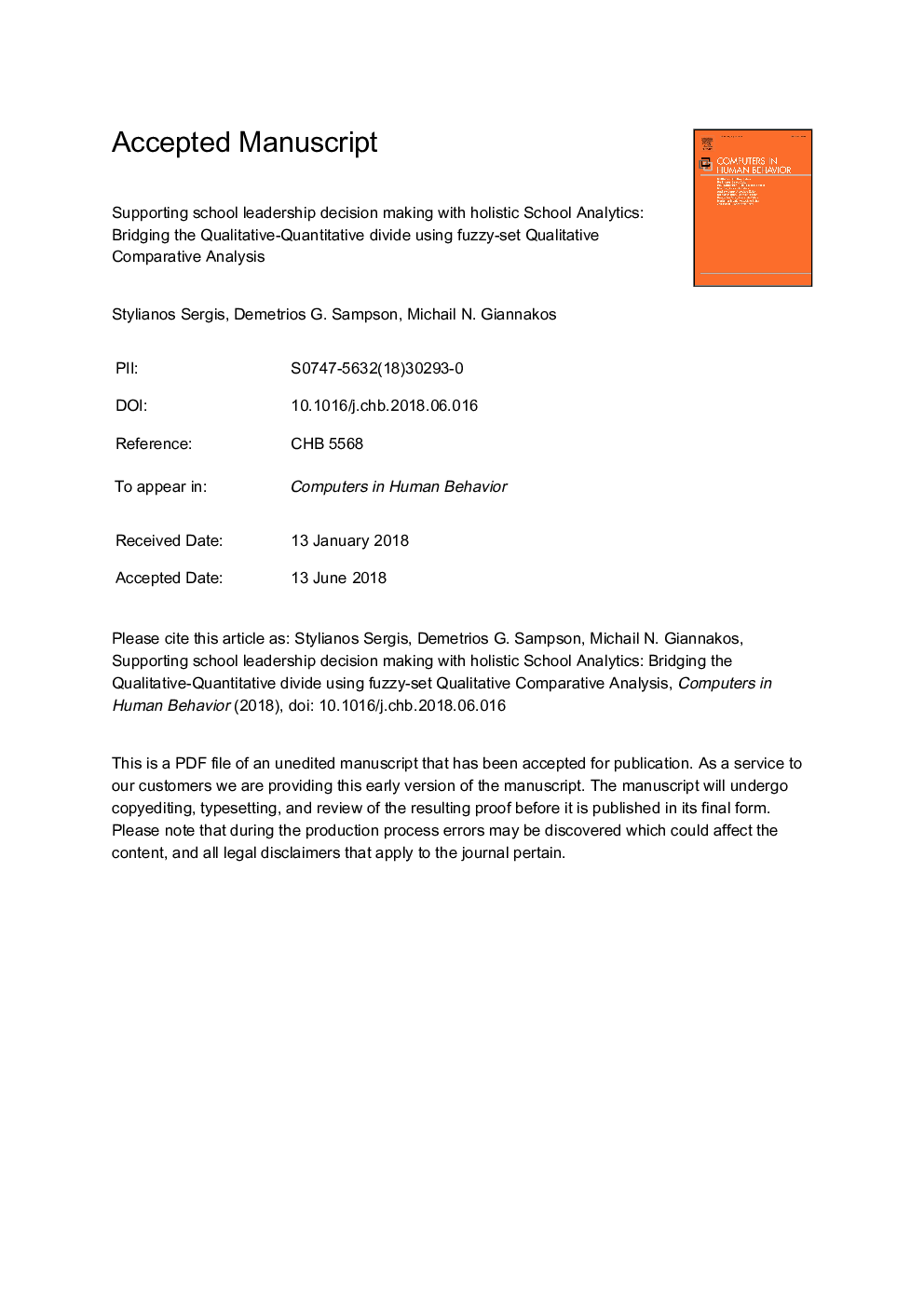| کد مقاله | کد نشریه | سال انتشار | مقاله انگلیسی | نسخه تمام متن |
|---|---|---|---|---|
| 11512888 | 1434602 | 2018 | 20 صفحه PDF | دانلود رایگان |
عنوان انگلیسی مقاله ISI
Supporting school leadership decision making with holistic school analytics: Bridging the qualitative-quantitative divide using fuzzy-set qualitative comparative analysis
ترجمه فارسی عنوان
حمایت از تصمیم گیری رهبری مدرسه با تجزیه و تحلیل مدرسه جامع: تجزیه و تحلیل تقسیم کیفی و کمی با استفاده از تجزیه و تحلیل مقایسه ای کیفی فازی
دانلود مقاله + سفارش ترجمه
دانلود مقاله ISI انگلیسی
رایگان برای ایرانیان
کلمات کلیدی
رهبری مدرسه، تجزیه و تحلیل داده های آموزشی، تحلیلگر مدرسه، تصمیم گیری آموزشی مبتنی بر داده ها، تجزیه و تحلیل مقدماتی کیفی فازی،
موضوعات مرتبط
مهندسی و علوم پایه
مهندسی کامپیوتر
نرم افزارهای علوم کامپیوتر
چکیده انگلیسی
School leaders around the world are increasingly required to orchestrate their school's strategic planning in order to both meet external accountability requirements and create fostering learning environments for all students. To meet these objectives in the complex school ecosystem, leaders need to make decisions based on holistic collection and analysis of diverse educational data, coming from different school actors (such as students, teachers, infrastructure, curricula, legislations etc.). However, this task can be very cumbersome, especially since contemporary 'School Analytics' methods aiming to support decision making have mainly accommodated the aspect of collecting and visualizing data or utilized variance-based analyses, but have yet to explicitly address the aspect of deriving insights to inform strategic school planning. In this context, the contribution of this work is to present and evaluate a novel School Analytics approach that employs fuzzy-set qualitative comparative analysis (fsQCA) as the means to bridge the qualitative-quantitative divide in learning technology research methods and provide leaders with actionable insights on how to create school conditions for fostering students' outcomes, focusing on digital skills as a case study. By employing fsQCA on data from almost 3000 schools across Europe, the paper outlines eight distinct configurations of school factors, which describe how school leaders can potentially generate nurturing environments for enhancing students' digital skills. Finally, the quantitative results from a layered evaluation protocol argue for the promising potential of the fsQCA method as a tool to unravel the complex knot of processing school-wide educational data and generating insights to inform school leaders' decision making.
ناشر
Database: Elsevier - ScienceDirect (ساینس دایرکت)
Journal: Computers in Human Behavior - Volume 89, December 2018, Pages 355-366
Journal: Computers in Human Behavior - Volume 89, December 2018, Pages 355-366
نویسندگان
Stylianos Sergis, Demetrios G. Sampson, Michail N. Giannakos,
